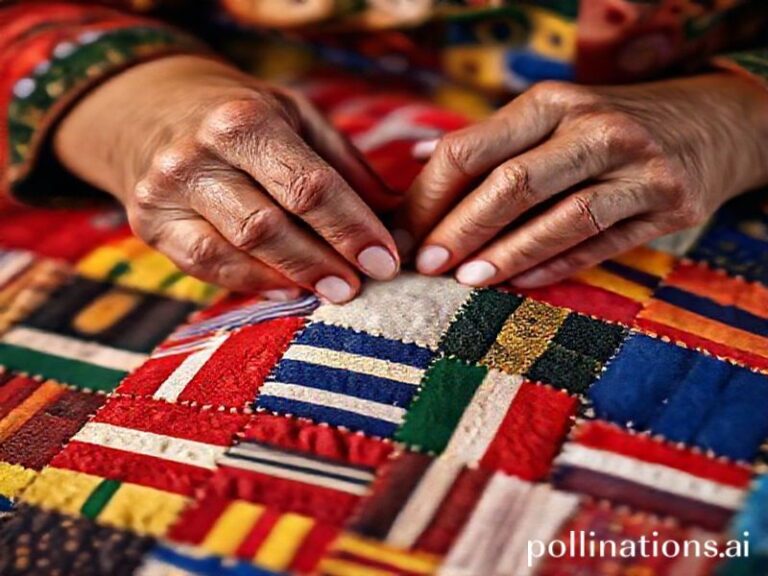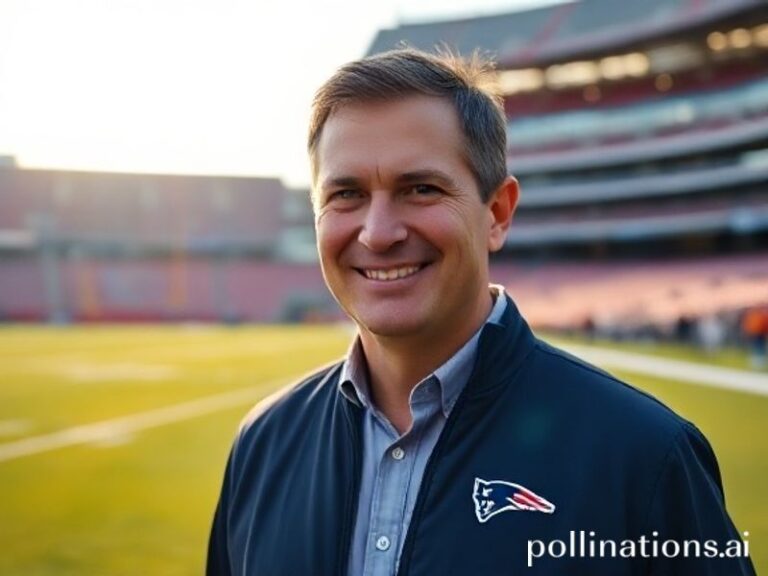felix auger
Felix Auger-Aliassime: The Maple-Leaf Messiah Who Forgot to Read the Script
By *Dave’s Senior Correspondent for Existential Tennis Meltdowns*
PARIS—Somewhere between the first and second espresso this morning, the global tennis-industrial complex realized it has been stood up at the altar again. Felix Auger-Aliassime—Canada’s polite, 6-foot-4 answer to the question “What if a royal guard decided to play baseline rallies instead of stare at tourists?”—has once more failed to convert raw promise into the Grand Slam silverware that marketers, maple-syrup lobbyists, and Netflix’s “Break Point” producers desperately need. The world yawned, then checked crypto prices.
The numbers are cruel in a way only spreadsheets can be: 0-for-5 in ATP finals this season, 0-for-9 lifetime in tour-level finals, and, for the numerologists among us, a 0 percent championship rate in events where victory is determined by winning the last point. Meanwhile, Carlos Alcaraz—three years younger—has already collected more major trophies than most nations have functional democracies. The contrast is so stark that even the Swiss, historically allergic to schadenfreude, permitted themselves a discreet Ricola cough of satisfaction.
Yet to dismiss Auger-Aliassime as merely another over-coiffed disappointment would be to miss the broader geopolitical subplot. Canada, long dismissed as the world’s attic—quiet, polite, storing everyone else’s old furniture—has spent the last decade rebranding itself as a supplier of tennis prodigies with hyphenated names and existential angst. Denis Shapovalov provides the rock-star bangs; Auger-Aliassime supplies the earnest post-match apologies. Together they form a soft-power doubles team, persuading foreign investors that a country unable to keep its own prime ministers in office for more than 18 months can still produce follow-through on a 140-mph serve.
The international implications are deliciously ironic. France, which treats every Canadian accent as linguistic treason, now finds itself hosting a player who speaks Parisian French more elegantly than half the cabinet. Meanwhile, the United States—where tennis relevance is measured in sneaker contracts—watches nervously as its own pipeline of teenage phenoms chooses pickleball or influencerdom instead. If Auger-Aliassime ever *does* win a Slam, Nike will have to decide whether to ship the commemorative sneakers to Montreal or simply reroute them from the warehouse marked “Next American Male Hope Since 2003.”
Bookmakers, those unlicensed therapists of global anxiety, currently list Auger-Aliassime at 22-1 to win Roland-Garros. Those odds are less about clay-court footwork and more about a tacit admission that human beings are unreliable narrators of their own potential. Place a tenner on him and you are essentially wagering on the idea that a 22-year-old millionaire will suddenly develop the killer instinct your middle-management colleague still lacks after 47 years on Earth.
Off-court, the branding machine lumbers forward undeterred. Tag Heuer still splashes his face across airport billboards, the watch hands frozen at 10:10—marketing’s universal shorthand for “we are all pretending time is on your side.” Rolex, ever the pessimist, sponsors the tournament itself, hedging its bets like a Swiss banker who’s skimmed too many centuries of neutrality.
And then there is the small matter of legacy. In an era when athletes are expected to moonlight as geopolitical influencers, Auger-Aliassime’s most radical act might be his refusal to pretend everything is fine. After yet another semifinal exit, he told reporters, “I’m learning to be patient with myself,” a sentence so Canadian it apologizes for existing. Somewhere in a Davos conference room, a brand consultant furiously scribbles, “Authenticity: monetize later.”
So we wait—along with Tennis Canada, the International Tennis Integrity Agency, and whatever shadowy cabal schedules three-hour rain delays for maximum dramatic irony. If Felix finally lifts a trophy, the world will momentarily forget its supply-chain woes and congratulate itself on believing in delayed gratification. If he doesn’t, we’ll simply pivot to the next prodigy, because hope—like plastic—is cheaper to manufacture abroad and ship in bulk.
Either way, the espresso’s gone cold, and the drawsheet resets tomorrow. The maple leaf flutters, unsure whether it’s a flag or just a garnish on the global buffet. And Felix Auger-Aliassime, bless his courteous heart, will stride onto court once more, racket in hand, politely requesting destiny to stop ghosting his texts.







